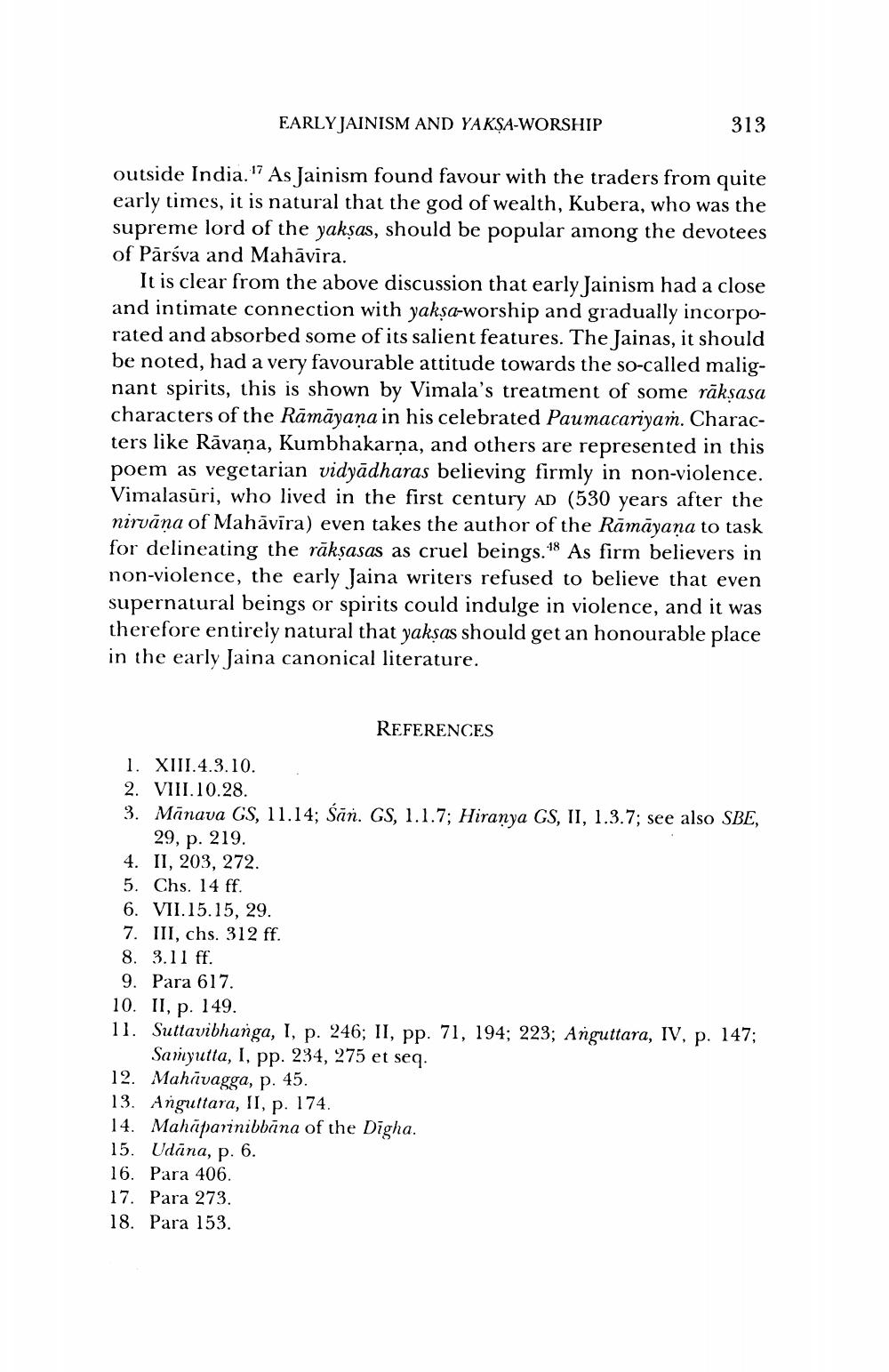________________
EARLY JAINISM AND YAKŞA-WORSHIP
313
outside India. 17 As Jainism found favour with the traders from quite early times, it is natural that the god of wealth, Kubera, who was the supreme lord of the yakşas, should be popular among the devotees of Pārsva and Mahāvira.
It is clear from the above discussion that early Jainism had a close and intimate connection with yakşa-worship and gradually incorporated and absorbed some of its salient features. The Jainas, it should be noted, had a very favourable attitude towards the so-called malignant spirits, this is shown by Vimala's treatment of some rākṣasa characters of the Rāmāyana in his celebrated Paumacariyam. Characters like Rāvana, Kumbhakarna, and others are represented in this poem as vegetarian vidyādharas believing firmly in non-violence. Vimalasuri, who lived in the first century AD (530 years after the nirvana of Mahāvīra) even takes the author of the Rāmāyaṇa to task for delineating the rāksasas as cruel beings. 18 As firm believers in non-violence, the early Jaina writers refused to believe that even supernatural beings or spirits could indulge in violence, and it was herefore entirely natural that yaksas should get an honourable place in the early Jaina canonical literature.
REFERENCES
1. XIII.4.3.10. 2. VIII.10.28. 3. Mänava GS, 11.14; San. GS, 1.1.7; Hiranya GS, II, 1.3.7; see also SBE,
29, p. 219. 4. II, 203, 272. 5. Chs. 14 ff. 6. VII.15.15, 29. 7. III, chs. 312 ff. 8. 3.11 ff.
9. Para 617. 10. II, p. 149. 11. Suttavibhanga, I, p. 246; II, pp. 71, 194; 223; Anguttara, IV, p. 147;
Samyutta, I, pp. 234, 275 et seq. 12. Mahivagga, p. 45. 13. Anguttara, II, p. 174. 14. Mahāparinibbana of the Digha. 15. Udana, p. 6. 16. Para 406. 17. Para 273. 18. Para 153.




